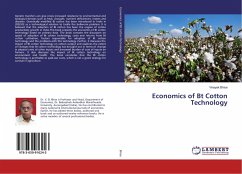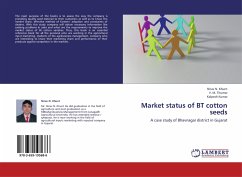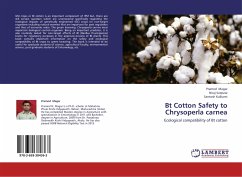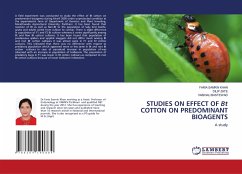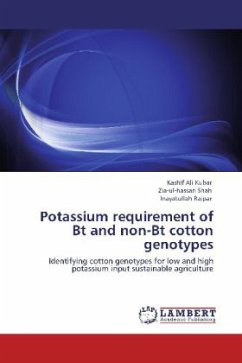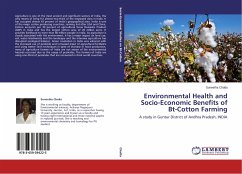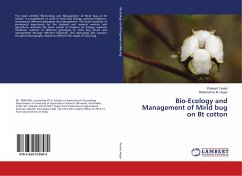Genetic transfers can give crops increased resistance to environmental and biological stresses such as heat, drought, nutrient deficiencies, insects and diseases. Genetically modified Bt cotton has been introduced in India in 2002-03 as a technological solution to tackle the bollworm problem. It is believed that the adoption of Bt cotton has been the engine of cotton productivity growth in India.This book presents the economics of Bt cotton technology based on primary data. The book contains the discussion on speed of adoption of Bt cotton technology, costs and returns from Bt cotton cultivation, factors responsible for adoption of Bt cotton technology and the problems with this technology. Further, it discusses the impact of Bt cotton technology on cotton output and explores the extent of changes that Bt cotton technology has brought out in terms of change in physical units of other inputs and increased burden of cost of inputs on farmers. It also discusses the impact of Bt cotton technology on environment and health. The book concludes that the Bt cotton technology is profitable to paid-out costs, which is not a good strategy for survival in agriculture.
Hinweis: Dieser Artikel kann nur an eine deutsche Lieferadresse ausgeliefert werden.
Hinweis: Dieser Artikel kann nur an eine deutsche Lieferadresse ausgeliefert werden.

